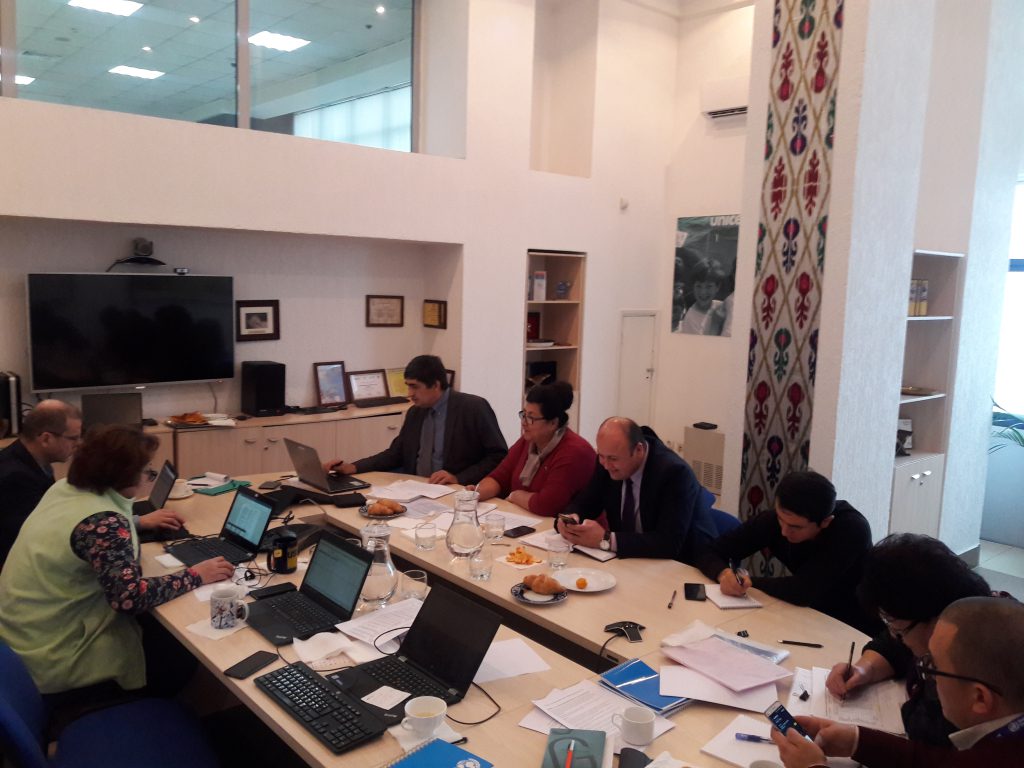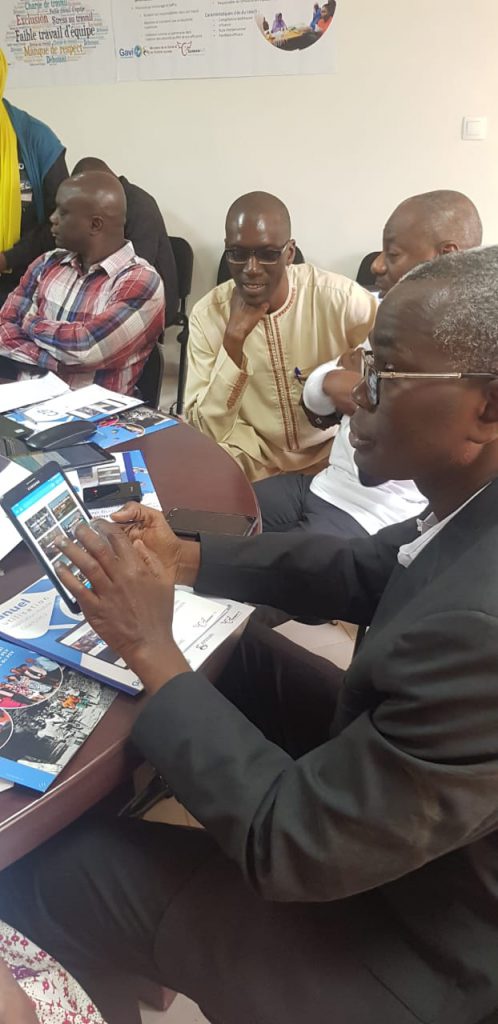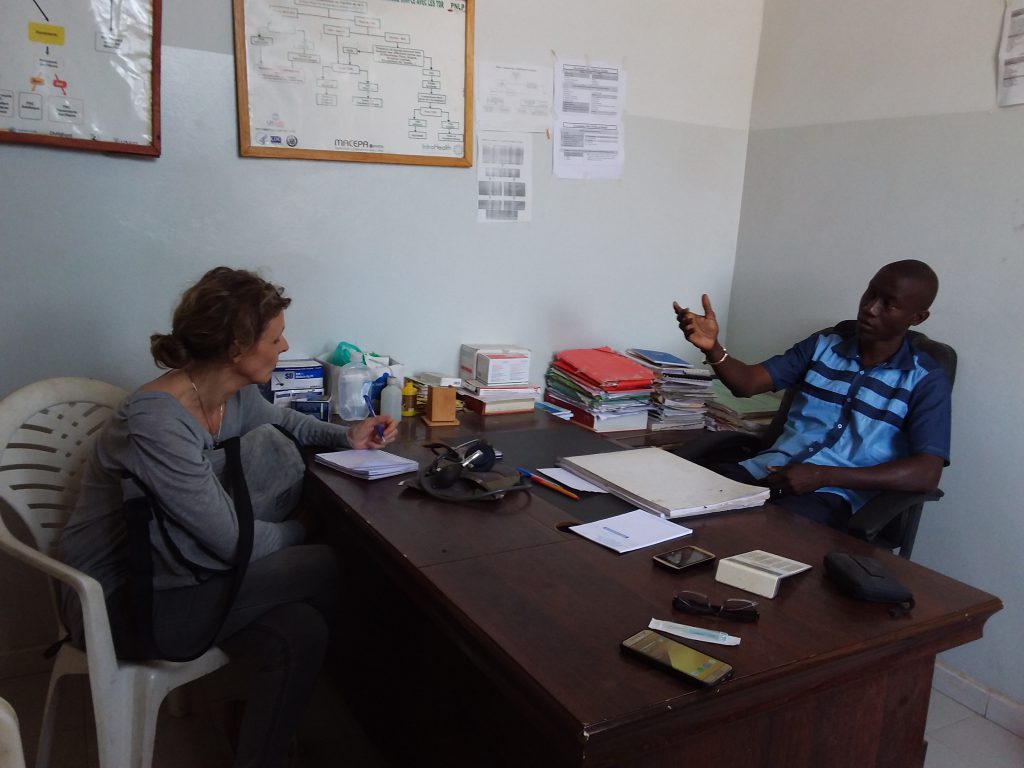
Equitable Access to Medicines, Vaccines, and Technologies
The Essential Need To Improve Supply Of Live-Saving Medicines And Vaccines
Ideally, the public health supply chain should provide reliable sources of health commodities in order to facilitate easy and equitable access to healthcare. Unfortunately, Low- and Middle-income countries (LMICs) still experience shortages of essential drugs and vaccines that disrupt health services, leading to missed opportunities to protect people from diseases and epidemics.
This situation is further exacerbated by the unprecedented worldwide lockdown due to the COVID-19 pandemic, leaving 67 million children without one or more vaccinations over three years (UNICEF, 2023). Once again, outbreaks of preventable diseases, including measles, diphtheria, polio, and yellow fever, are becoming more widespread and severe.
For long, GaneshAID has collaborated with national and international stakeholders to address the major barriers to efficient in-country supply chains.

Challenges to Supply Chain Performance
Lack of leadership and ownership with limited strategic vision
Ineffective coordination and oversight of supply chains within the context of the national health system
Insufficiency of accurate and reliable data for decision making
Unsatisfactory human resources for service delivery and supply chain management
Limited effect of supply chain interventions
GaneshAID’s Strategies to Address the Root Causes
Lack of leadership and ownership
Fragmented accountability of the health supply chain across in-country stakeholders is an impediment to ensuring the availability of medicines and vaccines up to the last mile.
We strengthen country ownership and governance structure capacity to prioritise, coordinate and be accountable within supply chain activities.
- Conducting national health supply chain assessments.
- Formulating costed supply chain strategies and operational plans.
- Establishing/strengthening effective governance structures for accountability, alignment, and coordination
- Managing health supply chain activities for proper disease prevention, diagnostics, and treatment of all communities.

Insufficient accurate and reliable data for decision making
We help countries determine and implement mechanisms to support the collection of key supply chain data required for decision making.
- Capacity building to capture and report consumption data, fostering health programme integration.
- Optimising digital technology for logistics management information systems (LMIS) from central up to facility levels. We focus on:
- Mobilising resources for increased electronic systems coverage,
- Building trust in the benefits of digital transformation among health workers, and
- Advancing expertise and skills needed for effective use of digital supply chain and logistics technologies.
- Increasing visibility on the performance of supply chain systems including:
- Quality: stock-out rates, order refill rates, buffer stock levels.
- Response times: by order turnaround times, on-time delivery, and fill rates.
- Efficiency and economy: ratio of transport cost to value of products and total delivery costs


Unsatisfactory Human Resources for service delivery and supply chain management
We help countries determine and implement mechanisms to support the collection of key supply chain data required for decision making.
- Advocating towards in-country decision makers for:
- Establishing human resources for health supply chain positions within the public system, such as supply chain managers, logisticians, cold chain officers, warehouse keepers, etc., including a clear career path.
- Attracting/Hiring/Retaining health supply chain professionals in the public system.
- Integrating systems to reduce the heavy overload of medical doctors, pharmacists, nurses, and midwives who should be fully dedicated to healthcare activities.
- Investing in pre-service public health supply chain curricula, preparing for the next generation of supply chain professionals.
- Innovating competency-based in-service training that embeds performance support within the workplace, including supportive supervision, mentoring, and coaching.
- Conducting Human Resources for supply chain management assessment.
- Formulating Human Resources for supply chain strategic plans.
- Conducting training needs assessment.
- Developing costed training master plans.
- Instructional designing health supply chain training programs.
Limited effect of supply chain interventions
We support innovative approaches to focus systematically on root causes analysis and not only symptoms in health systems. We support mechanisms to shape sustainable and evidence-based solutions for building resilient health supply chain systems.
Our Responses
National Logistics Working Groups – NLWG
Since 2015, GaneshAID team has been supporting health supply chain leadership and coordination through National Logistics Working Groups. An article published in The Vaccines describes the situation of the NLWG and provides good practices on NLWG across the world.
Likewise, to support more people establishing and reinforcing NLWG, our expert was the Subject matter expert of the e-learning module available on UNICEF/AGORA LMS.
HR4SCM rapid diagnostics for action and Training Needs Assessments
GaneshAID’s experts supported various countries to assess the situation of human resources for supply chain management. The Human Resource for Supply Chain Management Theory of Change Rapid Diagnostic Tool generated key evidence and relevant information about the in-country health and immunization supply chain workforce.
Health supply chain strategy development
GaneshAID’s experts supports countries developing public health supply chain strategies to guide prioritization of issues. The analysis of the Supply chain system at country level is the foundation of the strategic plan development process. It is an ongoing process for monitoring and evaluating the progress and improvements of the healthcare supply chain system, its operational functions and management. It is mainly crucial to monitor and assess periodically the situation of the healthcare supply chain in a context of rapid changes and reforms of the healthcare sector.
Supporting Vaccines potency through the GAVI CCEOP
Strong and efficient supply chains – equipped with reliable cold chain equipment (CCE) – are vital to helping countries increase immunisation coverage and equity, reaching children with lifesaving vaccines and protecting them against deadly diseases. To ensure that vaccines are widely available and remain cold, safe and effective throughout the entire supply chain, each country’s immunisation programme needs access to high-performing and well-maintained cold chain equipment.
Our CEO joined the team of experts to pre-review the quality, exhaustivity and rationale of Countries’ application to the Gavi COVAX CCE facility.
“I am so proud to support WHO and countries in this tremendous initiative. This will enable all countries to equitably access COVID-19 vaccines and address cold chain storage capacity gaps”
Dorothy Leab, GaneshAID CEO
COVAX is the vaccines pillar of the Access to COVID-19 Tools (ACT) Accelerator. The ACT Accelerator is a ground-breaking global collaboration to accelerate the development, production, and equitable access to COVID-19 tests, treatments, and vaccines.